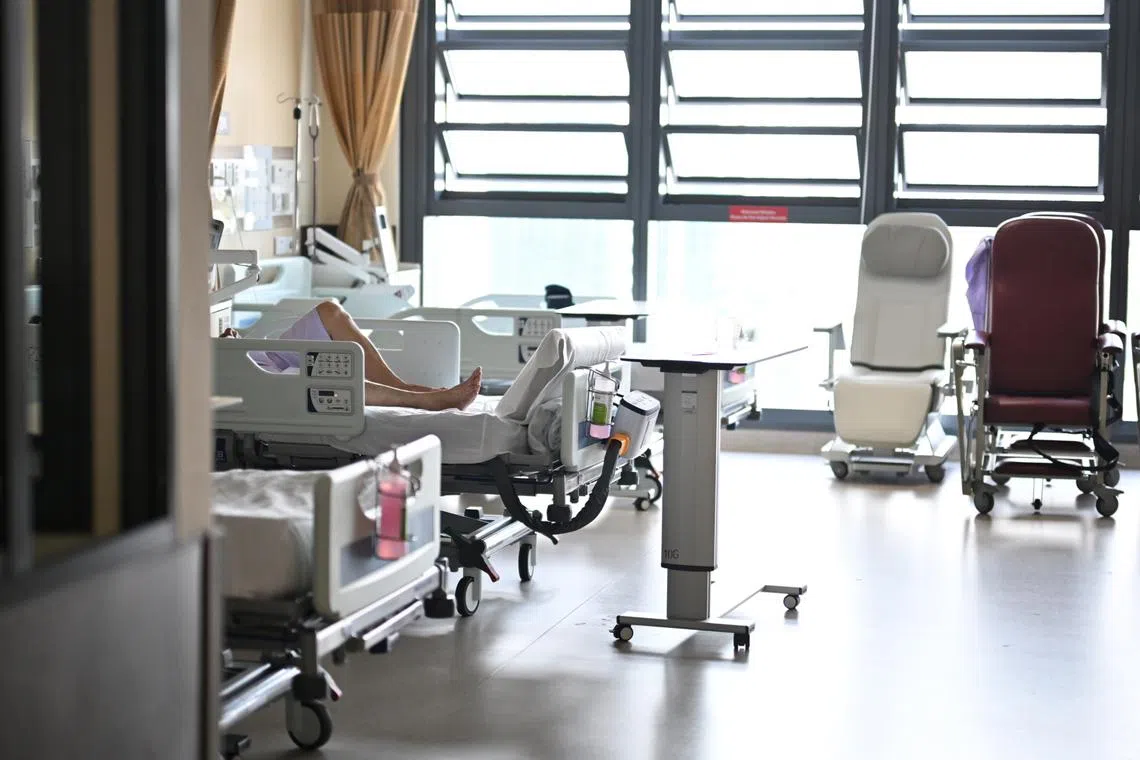Allowing IP policyholders to switch insurers freely not right solution for their issues: MOH
Sign up now: Get ST's newsletters delivered to your inbox

MOH will continue to look at measures to manage healthcare costs and ensure that all Singaporeans have access to good and affordable basic healthcare.
ST PHOTO: LIM YAOHUI
SINGAPORE – Allowing all Integrated Shield Plan (IP) policyholders to switch insurers freely is not the right solution for the issues they face, as it may lead to higher premiums and higher healthcare costs, said Minister of State for Health Rahayu Mahzam.
“MOH does not believe that mandating full portability for IPs is the right solution for the issues faced by policyholders,” she said in Parliament on Nov 12. Giving an update on a study by the Ministry of Health to assess the feasibility of IP portability, she said that, most of all, it is not an international best practice for supplementary and commercial personal health insurance to be fully portable.
The usual practice is for insurers to underwrite new policies in order to price the risks of accepting more policyholders with pre-existing conditions into their risk pool.
Underwriting can result in the insurer imposing additional conditions on the policyholder’s coverage, such as a waiting period during which no claims will be paid or exclusions to the coverage.
Policyholders may also have to pay higher premiums in view of the higher risks, said Ms Rahayu.
“At the national level, this will all… contribute to higher costs, and this is where the ministry’s concerns lie... We are constantly worried that these private policies are not sustainable. And that’s the key thing that we need to look at, because the change in terms is really a sign of this happening,” she said in response to a question on IP portability from Dr Tan Wu Meng (Jurong GRC).
Ms Rahayu said the IP insurers need to take a step back and renew the fundamental designs of their schemes.
“It cannot be about enhancing the payouts to get the market share, and when the sums don’t work out, then they adjust the terms. So that is the point that the Minister for Health was trying to address, and that is indeed why we are calling for a fundamental redesign of the system,” she added.
Health Minister Ong Ye Kung had said in April that the feasibility study on whether IP insurance should be made fully portable,
Some policyholders want to switch insurers for more competitive premiums or better benefits such as access to more panel doctors, while others wish to do so because they find it difficult to afford their IP premiums as they become older.
However, they will have to undergo another round of underwriting and may not be able to preserve the coverage they already have, or they have to pay more premiums.
Ms Rahayu said that for countries that ensure full portability where policyholders can switch insurers without underwriting, it is usually a feature limited to their mandatory national health insurance.
For example, in the case of the Netherlands or Switzerland, universal coverage is mandated but administered by private insurers. They are thus required to accept any applicant, including those switching from another insurer.
This gives the impression that commercial insurance is portable, but actually it is not, as only the basic coverage under the universal national health insurance scheme is fully portable.
These countries do have supplemental private insurance, which involves underwriting and is not portable.
Singapore’s parallel is MediShield Life, which offers all residents – regardless of age, health status, personal insurance or employer coverage – a basic level of protection against large hospital bills. It will be progressively enhanced from April 2025.
Australia is one country that has implemented full portability for non-national, supplemental private health insurance plans, but it did so for different reasons than one may think, Ms Rahayu said.
In Australia, private hospital care accounts for close to half of admissions, so good uptake of private health insurance, including through features like full portability, is integral to support access.
In all instances where full portability between private insurers is ensured, whether in the Netherlands, Switzerland or Australia, additional compensation mechanisms need to be established, she said.
In other words, for insurance company A to take over from insurance company B a policyholder with a pre-existing condition and of higher risk, A will receive compensation from B.
To facilitate this compensation system, countries set up a risk equalisation fund, usually funded with public monies and insurer contributions, and where a neutral body facilitates transfer payments between insurers.
“Significant additional national resources will be needed to set up and administer the fund. If we do this, it will be a whole new department,” said Ms Rahayu.
“Fundamentally, for the group of IP policyholders with pre-existing conditions, the issue may not be a lack of competition between insurers, but that the insurers are not actively competing for this group of customers.”
This is because insurers may have to pay out to them more than what they collect in premiums, she said.
For IP policyholders with pre-existing conditions, the assurance for them is that the Government has already stepped in to ensure that MediShield Life will cover them for their pre-existing conditions, even if their private insurance does not.
“The best way to provide assurance to everyone is to keep healthcare costs manageable,” said Ms Rahayu.
She added that MOH will continue to look at measures to manage healthcare costs and ensure that all Singaporeans have access to good and affordable basic healthcare.



